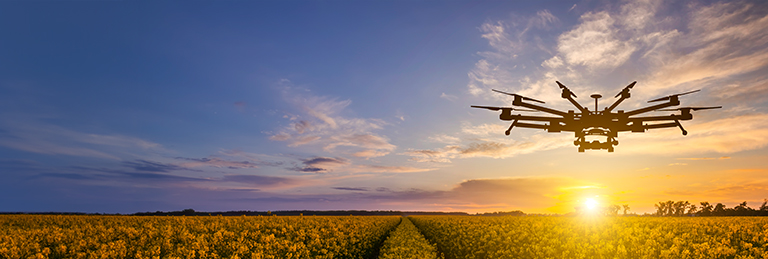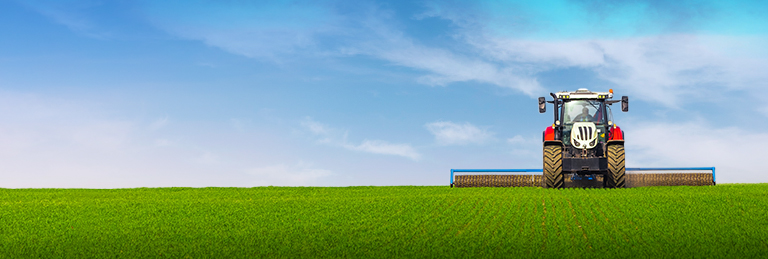After all, farmers no longer run isolated businesses on their farms and in their barns. Rather, they are integrated into complex international value chains. This applies to the procurement of operating resources as well as to the production of crops and animal products, and extends to quality control, transport and further processing.
Networking people, machines and process chains
"Taking a holistic view of the entire process chain is essential in view of the ambitious sustainability goals in Europe, but also due to the increasingly complex global challenges. Food safety as well as climate and environmental protection must be considered as equally important goals. To achieve this, people, machines and process chains must be linked. The key word here is: interoperability," says Dr. Tobias Ehrhard, Managing Director of VDMA Agricultural Machinery.
Seamlessly mapping business processes digitally
However, interoperability is much more than the mechanical, hydraulic or electronic connection of tractor and implement, which is already practiced thousands of times. "Agricultural technology has long since evolved beyond this stage. So it is by no means enough to merely connect machines, software systems and companies to the Internet and link them together. Rather, all players must be enabled to network entire business processes and data packages with each other and map them completely digitally," says Ehrhard.
The aim is "digital continuity“, by which is meant a seamless digital process chain that is already being tested in practice for arable farming. "Anyone who only thinks from sowing to harvesting is already thinking too briefly," explains Ehrhard. That's because an integrated process chain covers much larger data and information packages: "It starts upstream with manufacturer-specific input data, such as for the right mixture of crop protection substrate, and continues with precisely usable geo and cadastral data from state and federal offices. The actual sowing, fertilization, plant care or harvesting in turn require functionally integrated machine data in order to be able to make highly precise settings automatically. Downstream, we can then score points with the help of seamless logistics and processing data," says Ehrhard.
Overall, interoperable processes mean greater efficiency, higher productivity and positive contributions to climate and environmental protection. To achieve this, all data must be machine-readable, transferred via standardized interfaces and secured using appropriate protocols.
Global interoperability instead of countless isolated solutions
"What all these examples have in common is consistent thinking beyond the confines of one's own machine and system world. In addition to the necessary readiness for digital change, this requires above all legally binding data protocols. It goes without saying that these must be accessible without discrimination," explains Tobias Ehrhard.
Standardized communication protocols are essential so that any machines, software systems, companies and end users can interact smoothly with each other. "Proprietary solutions alone won't get anyone anywhere here. That's why we've brought everyone on board: Manufacturers, service providers, farmers and consumers. We are relying on a multi-stakeholder community, because the benefits grow with each additional player," says Ehrhard.
VDMA Agricultural Machinery is deliberately pursuing an international strategy with common standards and a clear regulatory framework. A multitude of competing initiatives would counteract overarching interoperability in agribusiness, because the goal is to overcome brand and system boundaries. "Sensible digital concepts are integrative in nature and not isolated stand-alone solutions. They must meet with broad acceptance in industry and agriculture alike. However, this can only succeed if we agree on powerful norms and standards.
This is precisely the path we are currently on in digitization in a very promising way. This applies to both family-run SMEs and large corporations," sums up Ehrhard. The agricultural machinery industry considers it crucial to anchor its interoperability strategy institutionally. "Europe and European agricultural technology must defend their hitherto strong position on the world market. This applies in research as well as in the field of standard setting. Here, we must be represented by sufficient expert personnel in the respective organizations," Ehrhard demands. "And in these efforts, we must not only look at the agricultural industry itself, but also include the upstream and downstream sectors. We are currently engaged in a very open and constructive dialog with relevant partners on this," he emphasizes.
Communicating know-how at all levels
Last but not least, industry-wide digitization also requires know-how carriers in practice. Training measures at all levels, for technical and management personnel, are indispensable. After all, in addition to functional aspects of machine use and process control, there are also legal issues, such as data ownership, or commercial topics on the agenda that need to be managed competently.








